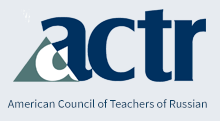Russian Language Journal
Keywords
L2 writing, L2 speaking accuracy, scaffolding, written recall, spoken recall
Abstract
This study’s objective was to attract researchers’ attention to the potential role second language (L2) writing can play in improving L2 speaking grammatical accuracy in a communicative language classroom. Twenty-three beginner, twenty-one intermediate, and twenty advanced English learners of Russian completed a ‘noticing the gap’ activity using a text-reconstruction task in both written and spoken modalities, followed by a second text-reconstruction only in the spoken mode. The responses were measured for syntactic and semantic accuracy and complexity. The results indicated that lexical diversity and semantic complexity of produced output significantly improved with each level of proficiency in both written and spoken modalities. More importantly, only the participants who worked with the texts in writing significantly improved oral grammatical accuracy in the second recall. Although a spoken mode of recall provided all learners with sufficient opportunity to improve their semantic accuracy and acquire new words from the text, only working with the text in writing helped students to notice their grammatical mistakes and to not use them in their subsequent speech production. These results demonstrate the significant potential that L2 writing has for scaffolding L2 speaking accuracy for all proficiency levels. A study investigating whether engaging in written recall tasks will lead to better accuracy in spontaneous speech is warranted.
Recommended Citation
Sletova, N. (2023). L2 Writing as a Tool for Improving L2 Speaking Accuracy through Text-Reconstruction Tasks in a Communicative Language Classroom. Russian Language Journal, 73(1). https://doi.org/10.70163/0036-0252.1334


